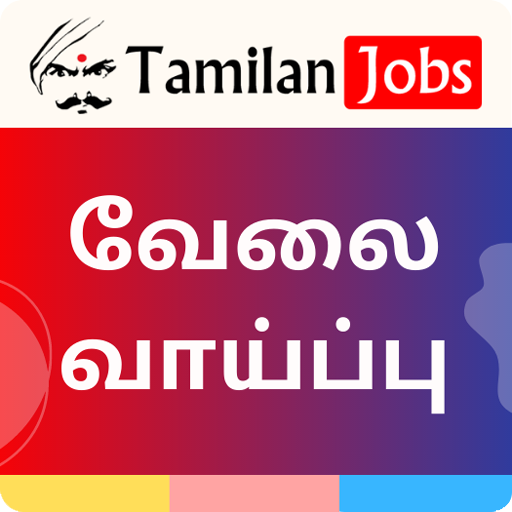RSMSSB Junior Accountant Syllabus 2023 PDF Download: The RSMSSB Junior Accountant Syllabus 2023 is a document that outlines the subjects and topics that will be included in the Rajasthan Junior Accountant and Tehsil Revenue Accountant exam. It is helpful for candidates who are preparing for the exam to know what they need to study. The syllabus provides a clear understanding of what will be covered in the exam and helps candidates prepare effectively. If you want to access the RSMSSB Junior Accountant Syllabus 2023 in PDF format, you can download it from the link provided at the end of this article.

RSMSSB Junior Accountant Syllabus 2023
The RSMSSB Junior Accountant Syllabus 2023 includes subjects such as Hindi, English, General Knowledge, General Science, Mathematics, Basic principles of computers, Book Keeping and Accounting, Business Methods, Audit, Indian Economics, and more. The RSMSSB Junior Accountant Exam Pattern 2023 provides details about both Paper 1 and Paper 2. Candidates can use the syllabus to plan their study schedule and allocate time to each subject based on their strengths and weaknesses. The syllabus helps candidates understand what topics to focus on for the exam.
Rajasthan Junior Accountant Exam Pattern 2023
Rajasthan Junior Accountant Exam Pattern 2023 – Paper I:
- Hindi: 25 questions, 75 marks
- English: 25 questions, 75 marks
- General Knowledge: 25 questions, 75 marks
- General Science: 25 questions, 75 marks
- Mathematics: 25 questions, 75 marks
- Basic principles of computer: 25 questions, 75 marks
- Total: 150 questions, 450 marks
- Duration: 2 hours 30 minutes
Rajasthan Junior Accountant Exam Pattern 2023 – Paper II:
- Book Keeping and Accounting: 25 questions, 75 marks
- Business Method: 25 questions, 75 marks
- Audit: 25 questions, 75 marks
- Indian Economics: 25 questions, 75 marks
- N.S.Ni. Volume-1 (Chapters II, III, X, XI, XIII, XIV, XV, & XVI) Rajasthan Civil Service (Joining Time) Rules, 1981: 25 questions, 75 marks
- P. V.L.N. Parts (Chapters 1, II, III, IV, V, VI, XIV & XVII): 25 questions, 75 marks
- Total: 150 questions, 450 marks
- Duration: 2 hours 30 minutes
Qualifying Marks for Rajasthan Junior Accountant Exam 2023
- Minimum of 35% marks in Paper I and Paper II individually.
- Minimum of 40% marks in aggregate (combined total of both papers).
- SC/ST category candidates are eligible for a relaxation of up to 5% in the minimum marks criteria.
- There will be no Viva-Voce Test conducted for the exam.
Rajasthan Junior Accountant Syllabus PDF Download Link
To Download The RSMSSB Junior Accountant Syllabus 2023 and Exam Pattern PDF Click Here
RSMSSB Junior Accountant Syllabus 2023
Rajasthan Junior Accountant Syllabus 2023 – Paper 1
Hindi
- सामाजिक पदों की रचना और समाज-विग्रह
- उपसर्ग
- क्रिया : सकर्मक, आक्रमक और पूर्वकालिक क्रियाएँ
- संधि और संधि विच्छेद
- प्रत्यय
- अनेकार्थक शब्द
- शब्द – युग्म
- लोकोक्तियाँ
- समानार्थक हिन्दी शब्द
- संज्ञा शब्दों से विशेषण बनाना
- पर्यायवाची शब्द
- विपरीतार्थक (विलोम) शब्द
- शब्द – शुद्धि : अशुद्ध शब्दों का शुद्धीकरण और शब्दगत अशुद्धि का कारण
- वाक्य – शुद्धि : अशुद्ध वाक्यों का शुद्धीकरण और वाक्यगत अशुद्धि का कारण
- वाच्य: कर्तृवाच्य, कर्मवाच्य और भाववाच्य प्रयोग
- वाक्यांश के लिए एक सार्थक शब्द
English
- Tenses/Sequence of Tenses
- Voice: Active and Passive.
- Narration: Direct and Indirect.
- Transformation of Sentences: Assertive to Negative, Interrogative, Exclamatory and vice-versa.
- Use of Articles and Determiners.
- Use of Prepositions.
- Translation of Simple (Ordinary/Common) Sentences from Hindi to English and vice-versa.
- Correction of sentences including subject, Verb, Agreement, Degrees of Adjectives, Connectives and words wrongly used.
- Glossary of official, Technical Terms (with their Hindi Versions)
- Synonyms
- Antonyms
- One word substitution
- Forming new words by using prefixes and suffixes.
- Confusable words
- Comprehension of a given passage
- Knowledge of writing letters: Official, Demi Official, Circulars and Notices, Tenders.
General Knowledge (with reference to Rajasthan)
- History, Art, Culture, Literature, Tradition and Heritage of Rajasthan)
- Important historical events in the history of Rajasthan, major dynasties, their administrative and revenue system, socio-cultural issues
- Freedom movement, public awareness and political integration
- Main features of architecture – forts and monuments
- Arts, Paintings and Handicrafts
- Important works of Rajasthani literature, regional dialects
- Fairs, festivals, folk music and folk dances
- Rajasthani Culture, Tradition and Heritage
- Religious Movements, Saints and Folk Gods of Rajasthan important tourist places
- Prominent personalities of Rajasthan
General Knowledge (with reference to Rajasthan) (Geography of Rajasthan):
- Major Physical Features and Major Geophysical Divisions
- Natural Resources of Rajasthan
- Climate, natural vegetation, forests, wildlife and biodiversity
- Major irrigation projects
- Mines and Mineral Resources
- Population
- Major Industries and Prospects for Industrial Development
General Knowledge (with reference to Rajasthan) (Political and Administrative System of Rajasthan)
- Governor, Chief Minister, State Legislative Assembly, High Court, Rajasthan Public Service Commission, District Administration, State Human Rights Commission, Lokayukta, State Election Commission, State Information
- Commission Public Policy, Legal Rights and Citizen’s Charter
General Knowledge (with reference to Rajasthan) (Economy of Rajasthan)
- The macro landscape of the economy
- Major issues of agriculture industry and service sector
- Growth development and planning
- Infrastructure and resources
- Major development projects
General Knowledge (in the context of Rajasthan) (Current Affairs)
- Major contemporary events and issues of Rajasthan state level, national and international importance
- Current Famous People and Places
- Sports and sports related activities
Everyday Science
- Physical and Chemical Reactions, oxidation and reduction reactions, metals and non-metals
- Hydrocarbons,
- Chloro-Fluoro Carbon (CFC)
- types of Lenses,
- Defects of vision and their corrections.
- Electric current,
- Compressed Natural Gas (CNG)
- Soap and Detergent Pesticides,
- Reflection of light and its laws, examples of refraction,
- Electric cell, Electric generator,
- Electric connection arrangement in houses.
- Working of house-hold electrical appliances.
- Uses of space science,
- Remote Sensing Technique and its uses.
- Information Technology.
- Environment – Components (Atmosphere, Lithosphere, and Hydrosphere),
- Pathogen and human health, Intoxicant, and human health,
- Mal-nutrition and human health.
- Immunity, Vaccination, Types of diseases,
- Ecosystem-structure. Food chain,
- Food-web, Nitrogen cycle.
- General information about – Bio-technology, Bio-patents, Stem cell, Cloning, Test Tube baby, Artificial insemination.
- Apiculture, Seri-culture, Fishery, Poultry, Dairy industry,
- Cereals, Pulses, Vegetables, Fruits, Medicinal plants.
- Hemophilia Color blindness, National Health Programmed, Manures – Bio-manure, Vermicompost.
- Blood group, Blood transfusion,
- RH factor, Human Health, and Pollution
Mathematics
- Natural numbers
- Profit and loss
- Simple interest & compound interest
- Time and distance
- Operations on real numbers
- Laws of exponents for real numbers
- Rational and irrational numbers and their decimal expansions
- Rational numbers and their decimal expansions
- Ratio and proportion
- Percentage
- Time and speed
- A measure of central tendency
- Mean, mode, the median of ungrouped & grouped data
- Work and time
- Collection of data
- presentation of data
- Graphical representation of data
Basics of Computer
- Introduction to Computer & Windows: Input/output Devices, Memory, PORTS, Windows Explorer Menu, Managing Files & Folders, Setup & Accessories, Formatting, Creating CD/DVD.
- Word Processing & Presentations: Menu Bars, Managing Documents & Presentations, Text Formatting, Table Manipulations, Slide Designs, Animations, Page Layout, Printing.
- Spread Sheets: Excel Menu Bar, Entering Data, Basic Formulae & Inbuilt Functions, Cell & Text Formatting, Navigating, Charts, Page Setup, Printing, Spread Sheets for Accounting.
- Working with Internet and e-mails: Web Browsing & Searching, Downloading & Uploading, Managing an E- mail Account, e-Banking.
Rajasthan Junior Accountant Syllabus 2023 – Paper 2
Book keeping and Accountancy
- Accounting – meaning, nature, functions, and usefulness, types of accounting, accounting equation, generally accepted accounting principles, concepts, and conventions.
- Accounting process: journals and ledger leading to the preparation of trial balance and preparation of final accounts with adjustments.
- Preparation of bank reconciliation statement.
- Rectification of errors.
- Accounting for depreciation – need, significance, and methods of providing depreciation.
- Receipts and payments account and income and expenditure account and balance sheet.
- Single entry system – Preparation of accounts from incomplete records.
- Partnership accounts :
- Fundamentals – capital-fixed and fluctuating, adjustments for change in profit sharing ratios, revaluation of assets, and treatment of goodwill.
- Reconstitution of the firm – Admission, Retirement, and Death of a partner, including treatment of life policy.
- Insurance Claims
Business Methods
- Business:- Introduction, scope, and objectives; Business Ethics and social responsibilities of business.
- Forms of Business Organisations:- Sole proprietorship, partnership, and company. Entrepreneurship:- Concept, importance, and causes of low development of entrepreneurship in India
- Negotiable Instruments:- Meaning, and types Sources of Business Finance.
- Advertising:- Meaning, importance, and methods.
- Consumer rights and protection against exploitation.
- Human resource planning, recruitment, selection and training.
- Communication – process, barriers, and suggestions to overcome barriers.
- Discipline – Causes, and suggestions for effective discipline.
- Coordination – Importance and principles
Auditing
- Auditing: meaning, objectives, types of audit, planning and procedures, audit program, working papers, test checking, routine checking.
- Vouching: concepts, importance, and procedures.
- Internal Control: meaning, objectives, internal check, and internal audit.
- Valuation and verification of assets and liabilities.
- Rights, Duties, and Liabilities of Company Auditor.
- Audit of Government Companies.
- Audit Reports and Audit Certificates
Indian Economics
- Indian Economy – Features, and problems, Economic policy, Industrial policy and Fiscal policy of India.
- Meaning, objectives, and importance of economic planning in India. Basic features of the Eleventh Five Year Plan.
- Population Explosion–Causes, effects, and remedies. The relation between population and economic growth.
- Role and significance of agriculture in Indian economy. Sources of agriculture finance and recent trends in agriculture marketing.
- Industrial growth and prospects in India.
- Inflation – Causes, effects and remedies.
- Role and problems of the Public sector in India.
- Impact of globalization and liberalization on agriculture and industry.
- Role of Multinational Corporations in the Indian economy.
- Foreign Trade – Volume, composition, and direction.
- National Income – Concept, computation methods, and distribution.
- The economy of Rajasthan – Basic features, development, and prospects of agriculture, industry, and tourism.

